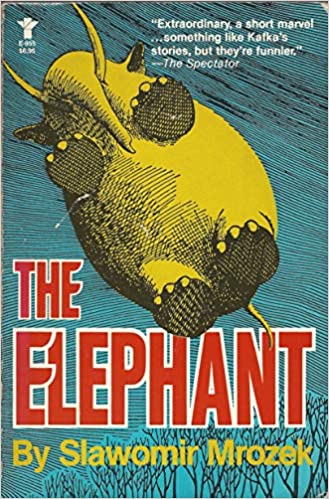Phrasal Verbs
Phrasal verbs are usually two-word
phrases consisting of verb + adverb or verb + preposition.
Think of them as you would any other English vocabulary. The
important thing is that students should become aware of the fact that learning
phrasal verbs is a process that requires different methods and activities.
Study them as you come across them, rather than trying to memorize many at
once.
As
well as learning their meanings, you need to learn how to use phrasal verbs.
Phrasal Verb ‘BREAK’
The phrasal verb is like all
other English verbs. Take a verb; add a preposition which changes with every
preposition.
BREAK AWAY = A. leave others behind B. leave State or organization
A. Lance Armstrong broke away from the other riders to win his 8th tour De France.
B. The break away Republic of China is causing problems for their neighbors again.
BREAK DOWN = A. end negotiations B. begin to cry C. stop working D. have physiological problems
A. The mid-east peace talks broke down after only two days.
B. She broke down when he left her.
C. The truck broke down in the desert.
D. She had a break down after her husband died in a terrorist attack.
BREAK IN = A. wear or use sth new B. interrupt C. enter unlawfully
A. I need to break in these new shoes... they're killing my feet.
B. While discussing the subject, John broke in with his take on the situation.
C. There was a break in down the street last night be sure to lock up.
BREAK IN ON = interrupt
John broke in on our private conversation... how rude!
BREAK INTO = enter unlawfully
A burglar broke into our house and took all of my mom's jewels.
BREAK OFF = A. end relationship B. stop speaking about something
A. Are you still with Pema? No, we broke it off in May.
B. He broke off in mid sentence and then started speaking about something else.
A. Lance Armstrong broke away from the other riders to win his 8th tour De France.
B. The break away Republic of China is causing problems for their neighbors again.
BREAK DOWN = A. end negotiations B. begin to cry C. stop working D. have physiological problems
A. The mid-east peace talks broke down after only two days.
B. She broke down when he left her.
C. The truck broke down in the desert.
D. She had a break down after her husband died in a terrorist attack.
BREAK IN = A. wear or use sth new B. interrupt C. enter unlawfully
A. I need to break in these new shoes... they're killing my feet.
B. While discussing the subject, John broke in with his take on the situation.
C. There was a break in down the street last night be sure to lock up.
BREAK IN ON = interrupt
John broke in on our private conversation... how rude!
BREAK INTO = enter unlawfully
A burglar broke into our house and took all of my mom's jewels.
BREAK OFF = A. end relationship B. stop speaking about something
A. Are you still with Pema? No, we broke it off in May.
B. He broke off in mid sentence and then started speaking about something else.
BREAK OUT = A. happen suddenly,
violently B. get a rash C. use for celebrating
A. Violent protests broke out in Athens after the shooting of a student.
B. She broke out in red blotchy spots before the big exam.
C. Break out the champagne! I'm getting married!
BREAK OUT OF = escape
The violent patient broke out of the prison ward of the psychiatric hospital.
BREAK THROUGH = advance in science, medicine social issues etc.
Jackie Robinson broke through the color barrier in professional baseball.
BREAK UP = A. break into pieces B. stop a fight C. end a relationship
A. I broke up the puzzle into a thousand pieces.
B. As a teacher, I've had to break up a fight or two.
C. They broke up after being together for 3 years.
A. Violent protests broke out in Athens after the shooting of a student.
B. She broke out in red blotchy spots before the big exam.
C. Break out the champagne! I'm getting married!
BREAK OUT OF = escape
The violent patient broke out of the prison ward of the psychiatric hospital.
BREAK THROUGH = advance in science, medicine social issues etc.
Jackie Robinson broke through the color barrier in professional baseball.
BREAK UP = A. break into pieces B. stop a fight C. end a relationship
A. I broke up the puzzle into a thousand pieces.
B. As a teacher, I've had to break up a fight or two.
C. They broke up after being together for 3 years.
Phrasal Verb ‘Break’ exercise
|
1. "Why did the negotiations break ____ again?
Don't they want to have peace?."
|
||
|
2. John broke ____ with Jill again. I doubt they'll
get married now.
|
||
|
3. He broke _____ from the group and won by more
than 10 meters..
|
||
|
4. Jill broke ____ the glass ceiling. She is the
first woman president of her company.
|
||
|
5. Don't let him break ____ us. We've got a lot to
talk about.
|
||
|
6. Our house was broken ____ last week but nothing was taken.
|
||
|
7. Like the song says, breaking ____ is hard to do.
|
||
|
8. He broke ____ jail and now he's on the run.
|
||
|
9. Professor Jonas is known for breaking ____ in
mid-sentence. He's losing it.
|
||
|
10. Our truck broke ___ on the way home from school
and we had to walk home.
|
‘Bring’ Phrasal Verbs
If you ‘bring something about’, you cause it to happen.
·
How can we bring about change in this old-fashioned company?
·
We need to bring about a change in attitude.
If you ‘bring someone along’ with you, they come with you.
·
I want to bring along Karma to the meeting, if that is OK.
·
Why not bring Dema along, if he’s interested?
If something ‘brings back’ memories, it reminds you of the past.
·
That photo brings back memories of our visit to Thailand.
·
Meeting him brought back memories of when we worked together.
If you ‘bring down’ a price, you reduce it.
·
We need to bring down the price to something more affordable.
·
They’re bringing down the price of all their cars.
If you ‘bring forward’ a meeting, you arrange it for an earlier time.
·
I want to bring forward the meeting to
Tuesday.
·
Can we bring forward the meeting by an
hour?
If you ‘bring someone in on’ a discussion, you ask them to join in with your discussion.
·
I want to bring in Sonam on this as he is an expert.
·
We need to bring in an outside consultant.
If you ‘bring out’ a new product, you introduce it to the market.
·
I hear they have brought out a new model.
·
We’re bringing it out early next year.
If you ‘bring someone round’, you persuade them.
·
He was against the idea but Pema brought him round.
·
How can we bring him round?
If you ‘bring up’ a subject, you mention it.
·
Mark brought up the problem with the heating.
·
Any other problems that you want to bring up?
If you ‘bring on’ somebody, you train them to be better.
·
Sonam always brings on the trainees really well.
·
We try to bring on people quickly and promote them.
Phrasal verbs with bring exercise
Complete the following sentences.
1. His dishonesty brought ……………………………….. his ruin.
a)
in
b) about
c) out
2. The government plans to bring ……………………………………….. a
new legislation to eliminate corruption.
a) in
b)
round
c) about
3. Vitamin deficiency brings ……………………………………….. many
ailments.
a)
in
b)
on
c) down
4. The publisher is bringing ………………………………………. a new
edition of this book.
a) out
b) on
c) down
5. He was hit hard on the head but the doctors managed
to bring him ……………………………………… after a while.
a) about
b) round
c) on
6. At last I brought him …………………………………………. to my
opinion.
a) about
b) round
c) u p
7. The matter was brought ………………………………………….. by a
member of the council.
a) up
b) about
c) out
Answers
1. His dishonesty brought
about his ruin. (bring about – cause to happen)
2. The government plans
to bring in a new legislation to eliminate corruption. (bring
in – introduce)
3. Vitamin deficiency brings
on many ailments. (bring on – cause)
4. The publisher is bringing
out a new edition of this book. (bring out – publish)
5. He was hit hard on the
head but the doctors managed to bring him round after a while.
(bring round – cause somebody to regain consciousness)
6. At last I brought
him round to my opinion. (bring somebody round to – persuade)
7. The matter was brought
up by a member of the council. (brought up – raise for discussion)








0 Comments